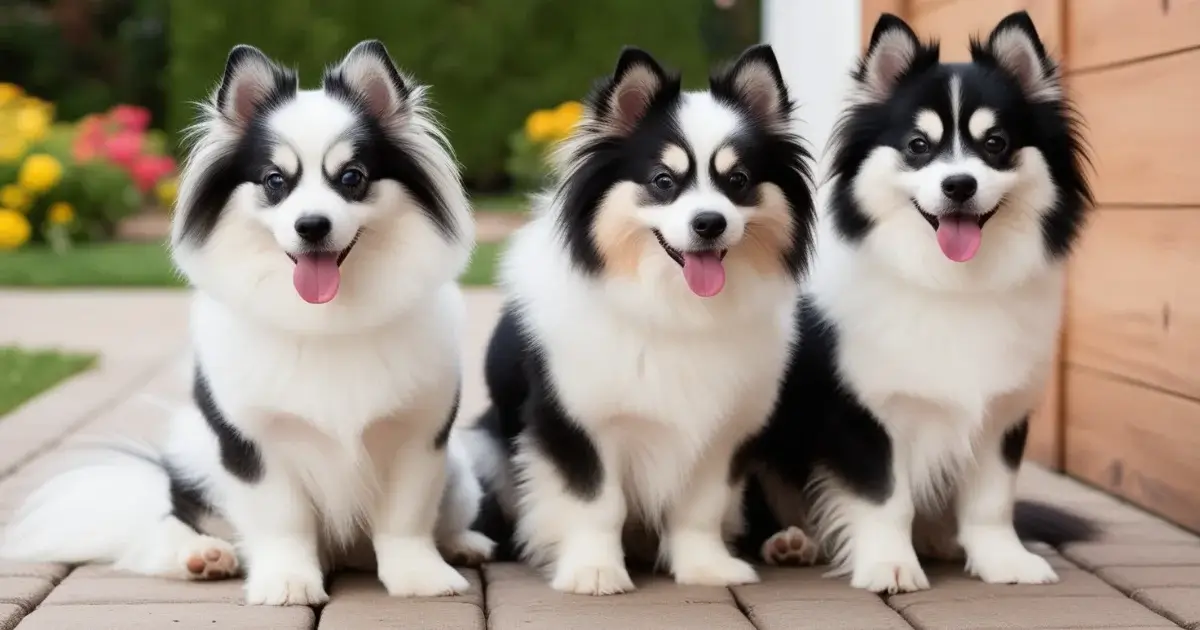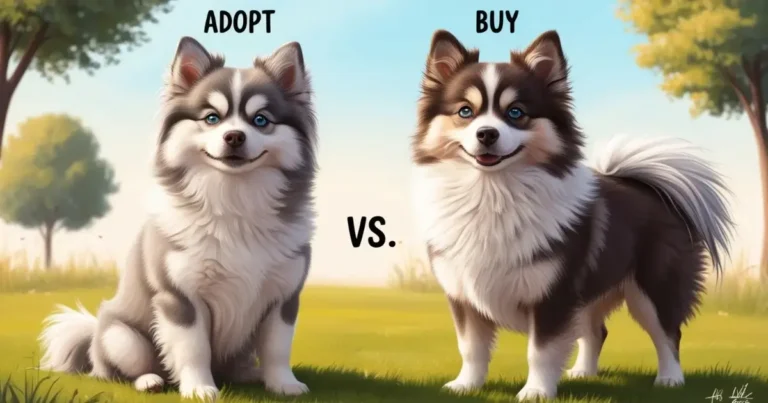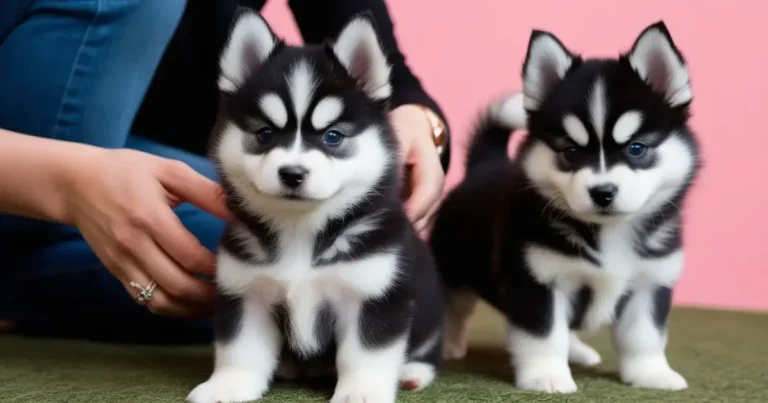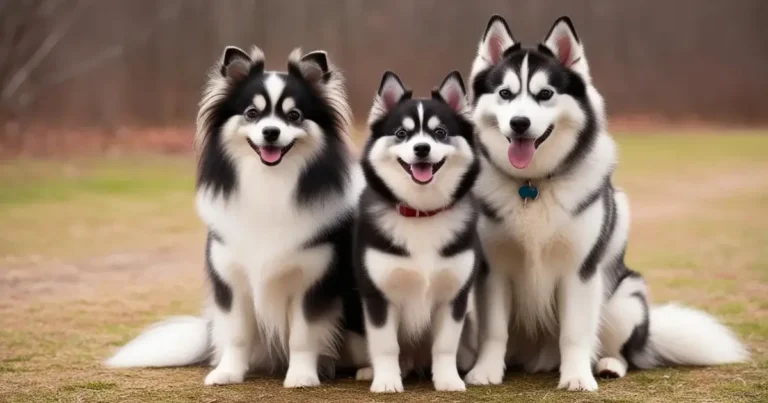Are Pomskies Hypoallergenic? Facts on Allergy-Friendly Traits
Pomskies are adorable designer dogs, a mix between Pomeranians and Siberian Huskies. They are known for their playful nature and fluffy coats. But if you suffer from allergies, you might wonder, are Pomskies hypoallergenic? Understanding hypoallergenic pomskies is important for allergy sufferers who love dogs but worry about allergic reactions. Let’s explore if Pomskies are hypoallergenic and what it means for those with allergies.
Table of Contents
What Does It Mean to Be Hypoallergenic?
Some believe hypoallergenic dogs don’t cause allergies. But that’s not true. Let’s clarify what hypoallergenic really means and address some common myths.
Understanding Hypoallergenic Dogs
Being hypoallergenic doesn’t mean a dog is allergen-free. Allergies come from proteins found in a dog’s:
- Saliva
- Dander (dead skin)
- Urine
When these proteins spread into the air, they trigger allergic reactions. Hypoallergenic dogs simply produce fewer allergens and usually shed less. This means there’s less dander in your home.
Misconceptions About Hypoallergenic Dog Breeds
It’s important to understand that no breed is fully hypoallergenic. Even dogs labeled as hypoallergenic can still cause allergies. The key difference is that these dogs shed less fur, which reduces how much dander spreads around your home. However, no dog is entirely free of allergens.
Are Pomskies Hypoallergenic Dogs?
So, are Pomskies hypoallergenic dogs? Unfortunately, no. Pomskies have some specific tendencies when it comes to shedding and allergens.
Pomsky’s Coat and Shedding
Pomskies inherit a double-layered coat from their Pomeranian and Husky parents. This coat is thick and sheds heavily. They shed year-round and even more during seasonal changes. This constant shedding increases the amount of fur and dander in the air. More shedding means more dander, leading to a higher risk of allergic reactions.
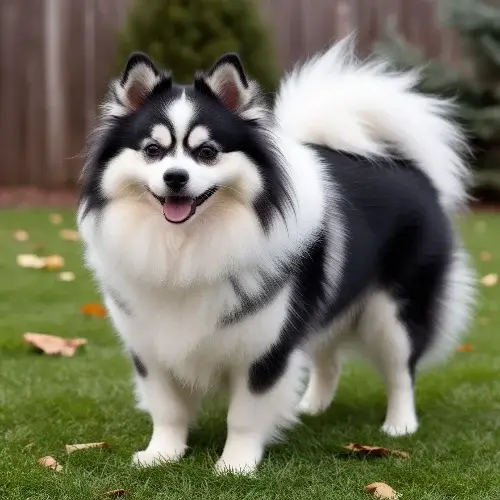
Pomsky vs. Hypoallergenic Breeds
When comparing Pomskies to hypoallergenic breeds like Poodles or Bichon Frises, the difference is clear:
- Poodles have curly hair that traps dander.
- Pomskies have fluffy fur that spreads dander around.
This makes Pomskies less suitable for allergy sufferers compared to true hypoallergenic breeds.
Why Pomskies Are Not Hypoallergenic (Reality Check)
The reality is that Pomskies are not hypoallergenic. Despite claims from some breeders, their shedding habits and dander production make them more likely to trigger allergic reactions.
Shedding and Allergens
Pomskies shed year-round, with heavy shedding during seasonal changes. Their dander, combined with constant shedding, easily spreads throughout your home. This can cause allergy symptoms like:
- Sneezing
- Itchy eyes
- Respiratory issues
The Role of Pomsky Size in Allergies
Larger Pomskies shed more, which results in more allergens. If you’re allergic, a larger Pomsky will be more challenging to manage.
Managing Allergies with Pomskies
Even though Pomskies aren’t hypoallergenic, some allergy sufferers can still manage with them. Here are a few ways to reduce allergens.
Grooming Tips for Reducing Allergens
- Regular brushing: Brush your Pomsky often to reduce loose hair and dander.
- Frequent baths: Use hypoallergenic shampoos to lower allergens on their coat.
- Professional grooming: Regular grooming by a professional can help manage shedding.
Creating an Allergy-Friendly Home
To reduce allergens in your home:
- Install HEPA filters: These air purifiers capture pet dander and allergens.
- Vacuum regularly: Focus on carpets and furniture where dander gathers.
- Wash bedding and blankets: Clean your dog’s bedding and blankets often to reduce dander buildup.
Alternatives to Pomskies for Allergy Sufferers
If you have severe allergies, a Pomsky may not be the best choice. Consider these hypoallergenic breeds instead.
Common Hypoallergenic Dog Breeds
- Poodles: Their curly coats trap dander, making them a top choice for allergy sufferers.
- Maltese: These small dogs have silky hair that sheds very little.
- Bichon Frise: Their fluffy coats rarely shed, keeping allergens low.
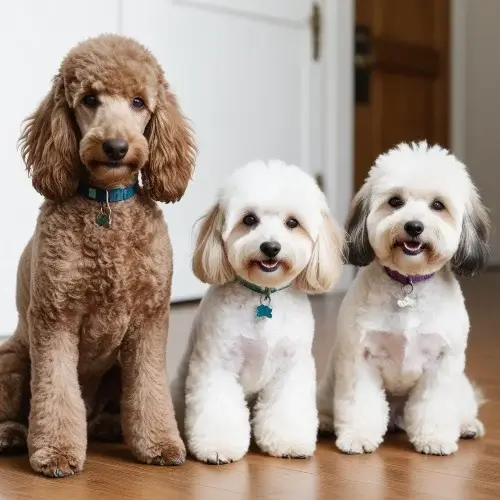
These breeds are better suited for people with allergies.
Is a Pomsky the Right Dog for Allergy Sufferers?
If you’re set on adopting a Pomsky, consider these factors:
- Everyone’s allergy sensitivity is different. Spend time around Pomskies to see how you react.
- Some people manage well with Pomskies, while others experience severe symptoms.
Final Thought
To sum up, Pomskies are not hypoallergenic. Their shedding and dander production make them unsuitable for people with severe allergies. But with proper care, some allergy sufferers can still enjoy life with a Pomsky. Consider your health and lifestyle before bringing one home.
FAQs
Are Pomsky Puppies Hypoallergenic Compared to Adult Pomskies?
Pomsky puppies are just as likely to cause allergic reactions as adult Pomskies. While their fur may be softer and shorter as puppies, they still produce dander, saliva, and allergens from an early age, making them unsuitable for those with severe allergies.
Is a Pomsky a Hypoallergenic Dog if They Are Regularly Groomed?
Even with frequent grooming, Pomskies are not hypoallergenic. Grooming helps reduce shedding, but it doesn't eliminate dander and other allergens entirely. Regular grooming can lessen allergen levels but won’t make a Pomsky allergy-proof.
Is the Pomsky Hypoallergenic If Kept in a Controlled Environment?
Keeping a Pomsky in a controlled environment with HEPA filters, frequent cleaning, and restricted access to certain areas may reduce allergens. However, even in such an environment, a Pomsky is still not considered hypoallergenic due to natural shedding and dander production.
Are Pomskies Hypoallergenic Dogs Compared to Siberian Huskies?
Pomskies inherit a similar shedding pattern from their Siberian Husky parent, so they are not hypoallergenic. Huskies shed heavily, and Pomskies follow suit. In fact, compared to hypoallergenic breeds, Pomskies and Huskies produce more allergens, making them less suitable for allergy sufferers.
